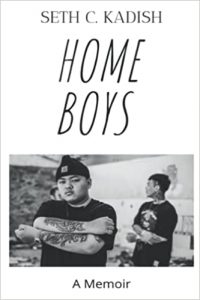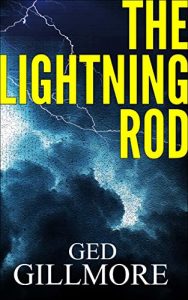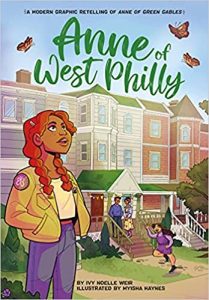Home Boys by Seth C. Kadish
Publisher: Self-Published
Genre: Non-Fiction, Contemporary
Rating: 4 Stars
Reviewed by AstilbeIn the year 2000, new therapist Seth C. Kadish is assigned a caseload of Probation boys at a Southern California group home. It’s trial and error, with moments of insight and learning, as Seth attempts to connect with the challenging teens – violent, manipulative Timothy who loves his mother and sister … Ramon, a bouncing butterball of energy and mayhem … odd Ryan who states a desire to be the first man buried on the moon … rapper Joey, jokester Enrique, sweet-natured Manuel … wanna-be gangster Antonio whose father is in the Mexican Mafia … and Rodney, angry and mistrustful, whose sole aim in life is to get back to his drug-addicted mother.
The generational cycle of trauma and abuse can be broken, but nothing in life is guaranteed.
One of my favorite aspects of this book had to do with how many questions I was left holding by the end of it. That may sound unusual but let me explain. I’d expect a work of fiction to resolve most of the conflicts in it, but that’s not how real life works. It felt utterly right to meet these individuals but not necessarily get to know if they lived happily ever after in the years that followed after the author moved on to other work. While I would love to read a sequel that gave updates, I was also satisfied with the idea that not everything in life can be tied up neatly in the end. Sometimes simply meeting interesting people is more than enough.
I wish more time had been spent diving into the backstories of specific residents of Cal Home. Every time it did happen, I was fascinated by the experiences these kids had and how trauma can be passed down from one generation to the next so easily if there’s a tragedy or if the adults in question don’t seek help for their troubles. It was a little odd to compare those scenes to the ones that fleetingly mentioned residents but never gave the audience a chance to get to know them on a deeper level. I think I would have preferred to only be introduced to residents who were going to share their stories.
There was so much compassion woven into this memoir. All of the kids Mr. Kadish worked with had experienced traumatic events, from being the victim of various forms of abuse to losing parents or parent figures at tender ages to seeing other people die from sudden acts of violence. It was impressive to me to see how the author shared examples of the suffering his clients experienced without broaching confidentiality or making excuses for the things they did that lead them to being sent to Cal Home or juvenile detention. Not only did he give wonderfully nuanced accounts of their pasts, but he also made it all seem so effortless even when he had very mixed feelings about particular kids on his caseload.
Home Boys was an engrossing read.
































